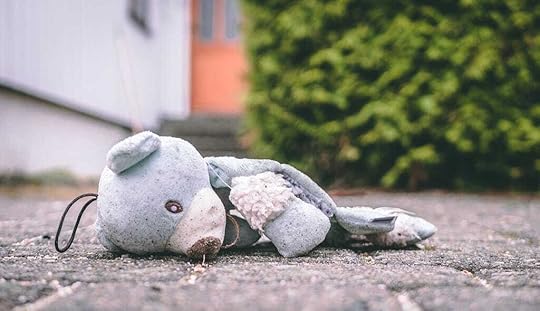Accept Adoptee Anger
 Photo by Trym Nilsen on Unsplash
Photo by Trym Nilsen on UnsplashAdoption begins with the trauma of separation and loss. How your child manages that fact is crucial for development and coping.
When we adopted our daughter at seven years old, there were days that grew into years of tears, angry tantrums and words that could not be taken back… on both sides. It’s hard not to react to — you’re not my real parents!
Our adoption journey began with only the best of intentions, however the daily struggle to ensure that she felt safe, secure and loved, was painful, rewarding, unexpected yet predictable. Adoptee anger is real.
These top five suggestions for coping are rooted in honesty. See if any of the following resonate for you.
First, be honest with yourself and your child as to why you adopted. From the beginning of my marriage, I knew that I wanted a family. Divorce delayed the plan and my bio clock was ticking. When I re-married, thoughts of a family took an urgent turn. All told, it was ten years of fertility treatments until we finally had a beautiful baby girl. Adding to our family proved impossible and that is how thoughts turned to adoption.
Our adopted daughter was a precocious seven-year-old brought to an orphanage in Cuernavaca, Mexico when she was just a baby. Our biological daughter was eight at the time of the adoption.
My sister and I have always had a close relationship and I wanted that for my daughters. However, it seemed like I was constantly waiting for the magic to happen. Our daughters have completely opposite personalities. Your family must take its own path. I had to let go of the sisterly bonding fantasy I had in my head.
Second, educate yourself about trauma and the primal wound. Love is not the only answer to the harmonious family life you seek. Your child may have deep-seated issues related to the multiple traumas of relinquishment.
As much as I wanted to love, hug and cuddle with my new daughter, she was having none of it. Trust must be built gradually and earning that trust was difficult. I communicated with my tone of voice as much as I could. Our experiences together as a family got us part way there. As the years have passed, she remembers those family traditions fondly and that makes me smile.
Acknowledging her trauma and letting go of my naive expectations was a long and difficult journey. It was, however, the only way our family moved forward.
We were trained, we were counseled yet the depth of her anger and struggles somewhat blindsided me. A loving family did not take away the pain of the family that she never knew.
Third, support outreach to the biological connections of your child’s first family. Things change as your child grows. Different levels of understanding about the adoption process will take hold as the distinctions between the first family and the adoptive family become apparent. If there is a desire for bio family connections, support from adoptive parents is essential.
My daughter lived almost seven years in Mexico and had strong ties to her native country. We have encouraged and maintained those ties over the years.
Fourth, connect to a therapist that is familiar with adoption issues, but steel yourself if progress is (painfully) slow. As much as I wanted to have all of the answers for my daughter, it was important for me to give her the opportunity to talk to someone else. This is not a statement about parental competency. I felt very confident in the family culture that we were creating, but an expert opinion is invaluable to every family.
Carve out your own time for healing. This journey will test you and your partner in many unexpected ways.
Therapist expertise should also change as your child grows. In the beginning, a play therapist helped us to jump start family communication. Later, in her teen years, the issues became more complex and we needed a different intervention.
Fifth, don’t give up under any circumstances. The energy and resources that you dedicate to your child may result in a breakthrough that you did not anticipate.
My daughter took ballet lessons in Mexico from a very young age. We continued instruction until it was apparent that her interest waned, but strongly encouraged her to complete the year with her class. By then, high school athletics had taken over and that became her priority. It was a positive change that she controlled.
Try any and all ideas. Call on your motherly/fatherly instincts. There is no one path to the family you seek. Regardless of what you try, the anger will be there. Adequate preparation will help you to deal, and move your family forward. Watch carefully for those breakthrough moments of progress. I am rooting for you!
Anna Maria DiDio, MSW is an author and speaker who writes children’s books about adoption trauma, separation, and grief. Her books and more can be found at www.amdidio.com
[image error]Accept Adoptee Anger was originally published in Be Yourself on Medium, where people are continuing the conversation by highlighting and responding to this story.



